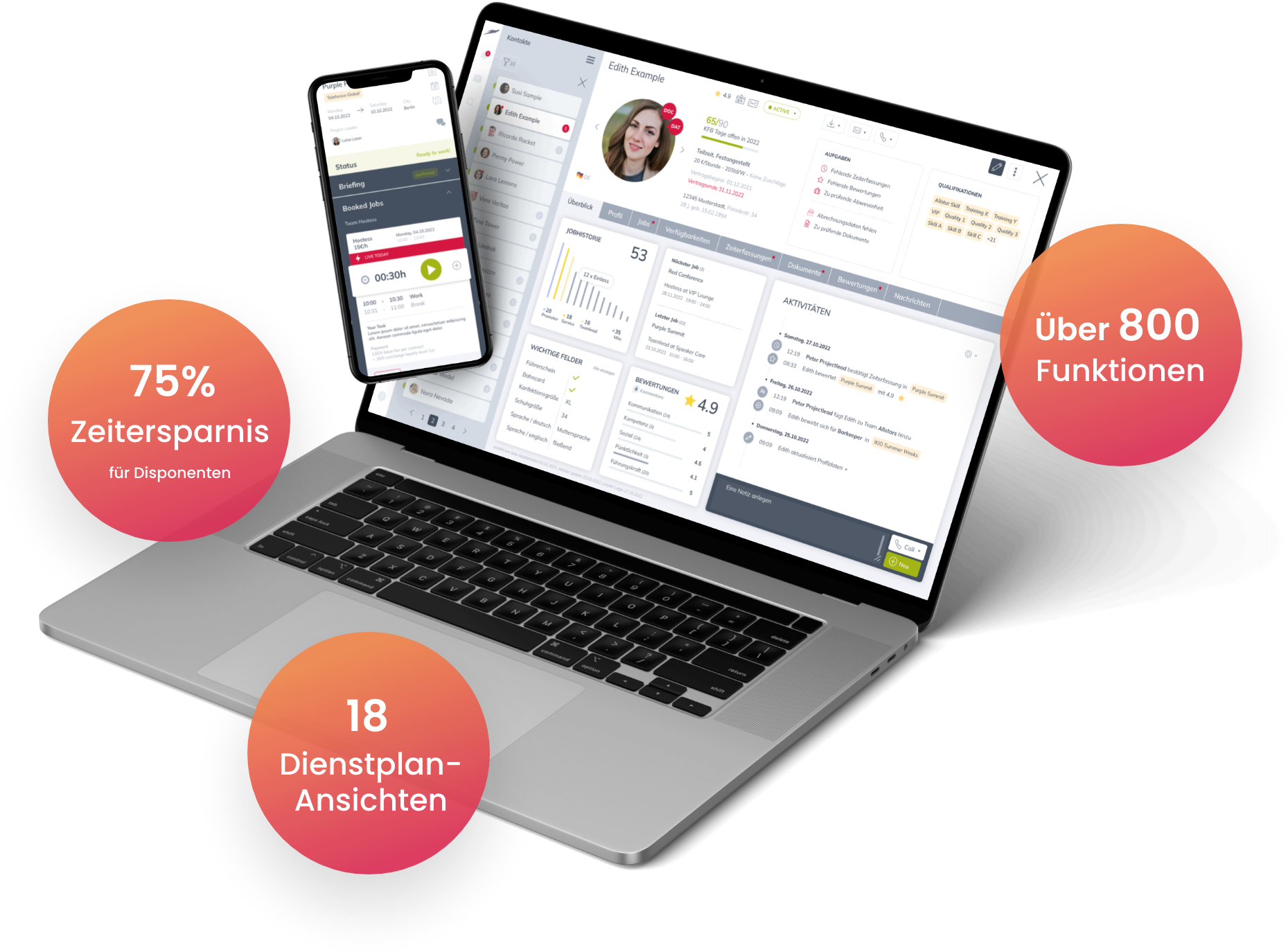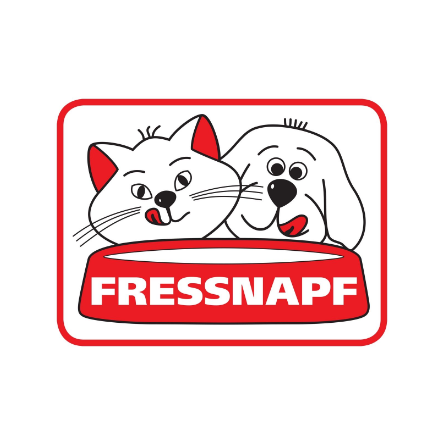The most important questions in the performance review!
Everyone knows that the performance review offers the opportunity to discuss development potential, give feedback and define future goals. But what are the right questions for the manager that have the potential to create a real dialog that benefits both sides?
This guide shows you which questions will help you make progress in the appraisal interview, which topics to avoid and how you can create a positive atmosphere through targeted preparation.

Why employee appraisals are so important
A professionally conducted performance review creates a protected space for open and constructive communication. Ideally, it is about discussing current challenges as well as discovering hidden potential and development wishes of employees.
A systematic approach to employee appraisals pays off for everyone involved. Employees have a valuable opportunity to actively shape their own professional development. to help shape the future. They receive clear guidance on their current performance and position in the company as well as transparent insights into their development prospects.
For their part, managers benefit from a much deeper understanding of the needs and potential in their team. The structured discussions enable them to recognize the need for action at an early stage and take proactive countermeasures. By conducting professional discussions, they strengthen their own leadership position and create a documented basis for well-founded personnel decisions.
There are several strategic advantages for the company as a whole:
Transparent communication leads to greater employee loyalty, clear target agreements increase productivity.
Why many still shy away
Despite their importance and benefits, employee appraisals are often viewed with unease – on both sides of the table. Possible reasons for this are:
Management concerns:
- Concern about emotional reactions to critical feedback
- Uncertainty in handling salary issues or promotion requests
- Fear that employees’ personal problems will be addressed, which are difficult to handle
- Lack of time and the impression that the conversation could be “useless”
- Fear of conflict escalation where tensions already exist
- Uncertainty about your own conversation skills
Employee concerns:
- Unclear about the questions they expect to be asked in the appraisal interview
- Concern about negative consequences if honest feedback is given to the manager
- Uncertainty about the “unwritten rules” of such conversations
- Fear that their own achievements will not be adequately recognized
- Fear of unattainable targets
- Concern about hidden “pitfalls” in the documentation
Preparation – the foundation for a successful conversation
Careful organizational preparation creates the framework in which a constructive dialogue is possible in the first place. The first step is to define the basic framework conditions. This starts with choosing a suitable date and location.
A meeting room offers several advantages: It is neutral, avoids the hierarchical emphasis of the manager’s office and ensures the necessary confidentiality. The room should be checked for suitability in advance: Is it sufficiently soundproofed? Are there any disturbing noises from outside? Is the temperature comfortable? The seating arrangement also plays an important role: a conversation around a corner at a square table creates a more pleasant atmosphere than a frontal seating position.
Checklist for immediate room preparation:
- Provide drinks (at least water, ideally also coffee/tea)
- Sufficient glasses/cups
- Notepads and pens for both conversation partners
- Flipchart or whiteboard with working pens
- Check air conditioning/ventilation
- “Do not disturb” sign on the door/room blocker in the calendar
- Optimize lighting (not too bright, not too dark)
- Set cell phones to silent
- Laptop/computer only if necessary, but then already booted up and ready for login
The use of documents such as preparation documents or development plans is also a great help. With good personnel management software, you can easily and quickly create such documents from templates and adapt them to the employee.
Questions for the appraisal interview – developing the common thread
Clearly define goals and topics
The first priority is to precisely define the topic of the meeting and the associated objectives. Whether it is a target agreement, a performance appraisal or other topics – the objectives must be realistic and clearly formulated. It is also advisable to develop alternative or sub-goals in case the main goal cannot be achieved.
Lines of argumentation and discussion structure
We recommend dividing the conversation into three parts with clearly defined time slots. The introduction (around 10% of the interview time) is used to create a positive atmosphere and explain the objectives of the interview. The main part (around 80%) should be structured chronologically or thematically, with concrete examples and evidence prepared for each point.
The conclusion (around 10%) summarizes the results and defines the next steps.
It is particularly important to prepare for critical discussion situations. At least three specific examples should be documented for each potentially difficult topic. These should not be older than six months and refer to observable behavior, not to interpretations or hearsay.
Interpersonal preparation – focusing on the individual
The relationship level requires honest self-reflection. Managers should ask themselves: How have the last three to five interactions with the employee been? Have there been any conflicts or misunderstandings? What communication patterns have become established? An analysis of previous leadership behaviour can help you to recognize your own patterns of behaviour and adapt them if necessary.
Managers should be aware of their own attitude towards the employee and reflect on possible prejudices, sympathies or antipathies. It is also important to consider the other person’s perspective: How might they view the relationship? What experiences from previous conversations could influence the current conversation?
Individual needs and emotional aspects
A deeper understanding of the employee’s personal situation, interests and challenges is of great value. Managers should deal with the goals and needs of employees and anticipate possible behaviors. Emotional aspects deserve special attention: Which topics could emotionally charge the conversation? How can you respond appropriately to emotional reactions?
If critical feedback needs to be given, it is best to formulate it clearly and unambiguously. The method often recommended in the past Sandwich method can lead to the employee not feeling taken seriously. At least two concrete suggestions for improvement should be prepared for each criticism.
Further aspects for sustainable success in discussions
A protocol grid containing the most important points of discussion should be drawn up during the preparation phase. This should provide space for the agreed measures, timetables and responsibilities.
The evaluation of target achievement to date must be based on measurable criteria. To this end, all relevant key figures and performance indicators should be compiled. In the case of qualitative targets, it is advisable to document specific examples of behavior.
Managers should also consider which aspects of their leadership behavior they would like feedback on and how they can deal constructively with critical feedback. Specific questions can be prepared for the appraisal interview, such as: “How satisfied are you with the support you receive from me as a manager?” or “What form of cooperation would you like to see in the future?”
Through the targeted preparation described above, managers can create a positive atmosphere and show that they take the discussion seriously and value the employees’ contribution.
How do you ask the right questions in a personnel interview?
The best questions for an appraisal interview are clearly formulated and leave room for reflection and development. They provide impetus and encourage an open discussion. An overview of important question types:
- Open questions:
Open questions motivate employees to share their own ideas and opinions. Example: “What challenges have you experienced in the last few months?” - Reflection questions:
They help employees to think about their own strengths and potential. Example: “In which areas could you develop further?” - Constructive feedback questions:
Such questions make it possible to talk about negative experiences and develop solutions together. Example: “As your manager, what could I have done better to support you?”
These questions are taboo in the appraisal interview
Not all questions are suitable for an appraisal interview. Some questions are taboo or should be avoided as a matter of urgency.
Taboo questions are often:
- Suggestive and judgmental
- Focusing on deficits instead of solutions
- Can be interpreted as a reproach
- Create a defensive discussion atmosphere
- Possible invasion of privacy
Good questions, on the other hand:
- Open the dialog
- Focus on solutions and development
- Respect personal boundaries
- Create a constructive atmosphere for discussion
- Enable real exchange
Examples of taboo questions
- “Have you achieved your goals?”: This question puts employees under pressure and leaves little room for open answers. A more open formulation is better, such as: “What successes have you achieved recently?”
- “Why didn’t you achieve this goal?”: A “why” question can put employees on the defensive. It’s better to ask a question that encourages reflection, such as: “What prevented you from achieving your goal and how can we improve this together?”
- “Why were you ill?”: Questions about health are taboo and constitute a breach of privacy. Refrain from asking direct questions about the cause of your illness.
- “Are you planning a family?”: Family planning is a sensitive topic and should only be discussed if employees mention it of their own accord. Such questions can disturb the relationship of trust.
- “Could you get more involved?”: A general question about commitment comes across as pejorative and is too vague to be constructive. It would be better to ask: “In which areas would you like to get more involved?”
- “What do you do in your free time?”: Questions about private life only belong in the interview if they are addressed by the employees themselves.
- “Why didn’t you complete this project on time?”: Such questions put the focus on failures and give the impression of blame. A better approach would be: “How could we work together to ensure that future projects are completed on time?”
The most important topics for questions in employee appraisals
Questions about goals and performance
A central topic of every appraisal interview is the objective and evaluation of performance. Questions that address individual performance and future challenges are helpful here:
- “What personal goals would you like to achieve in the next six months?”
- “Where do you see yourself professionally in a year’s time?”
- “What skills would you like to develop further?”
Such questions allow employees to formulate their own goals and give managers insights into individual strengths and weaknesses.
Questions about job satisfaction and team dynamics
Job satisfaction and the social environment have a decisive influence on productivity and employee satisfaction. Relevant questions are:
- “How do you feel about working in a team?”
- “Are there any aspects of your work that you would like to change?”
- “What support do you need to do your job to the best of your ability?”
These questions in the appraisal interview create a constructive dialog about the working environment and any problems in the team.
Questions on future orientation and willingness to innovate
An employee appraisal is a good opportunity to encourage employees’ willingness to innovate and to gather ideas for the further development of the company:
- “What ideas do you have for improving work processes?”
- “Are there any new projects that interest you?”
- “How could we make even more targeted use of your strengths?”
These questions motivate employees to play an active role in the company’s development.
Further tips for a successful appraisal interview
In addition to the choice of questions in the appraisal interview, other factors play a role in the success of the interview. Here are a few tips:
- Create transparency and openness:
Explain the purpose of the meeting clearly so that employees know what to expect. - Practice active listening:
Show genuine interest in the answers and give employees enough space to express themselves. - Give constructive feedback:
Praise and criticism should be balanced. All feedback should be specific and comprehensible. - Show commitment:
Record the measures discussed and implement them consistently.
It is also advisable to avoid comparisons with other employees, as this is often perceived as unfair. Specific, observable situations should be addressed instead of talking vaguely about general behavior.
When criticizing, it is important to stick to the facts and use first-person statements instead of formulating accusations. You should also give employees enough space to present their point of view and offer alternative explanations.
Conclusion: Successful appraisal interviews – reaching your goal with the right questions
When questions are clearly formulated, feedback is given in an open and targeted manner and individual goals are developed together, both employees and managers benefit, as does the company as a whole. Employee appraisals create transparency, boost motivation and help to develop potential in a targeted manner.
A successful performance review is based on targeted questions, an open exchange and clear objectives. Structured discussions that address the needs of employees create a basis of trust and support the long-term development of your teams.
To support this process, Teamhero offers a clearly structured employee databasewhich records all relevant personnel information centrally and digitally. You have access to a 360-degree overview of your workforce at all times – from master data and individual qualifications to absences and working time accounts.
The central personnel file enables you to view all important information in advance of employee appraisals and to address individual development needs in a targeted manner. By specifically grouping and managing individual qualifications, you are able to define suitable development plans and targeted support measures.
Make your appraisal interviews more efficient and professional! Try out Teamhero and keep all your employee data and meeting documentation at your fingertips.
























